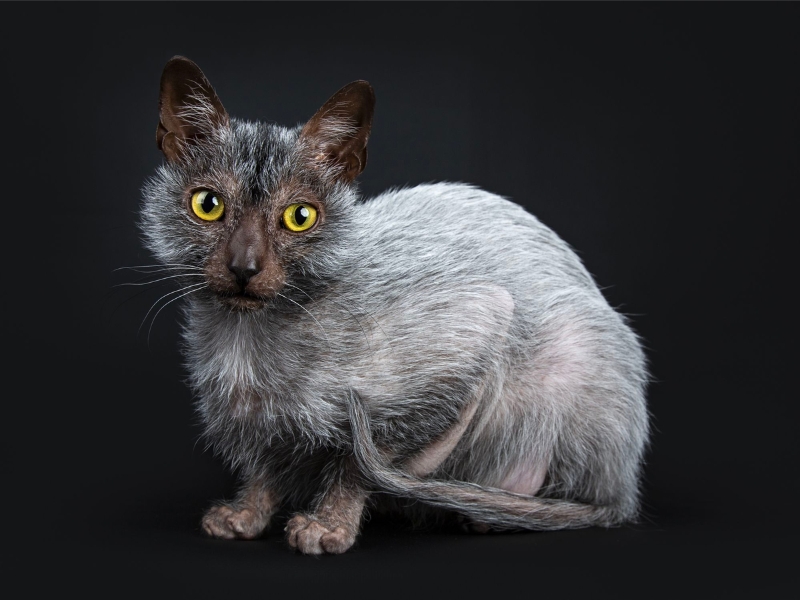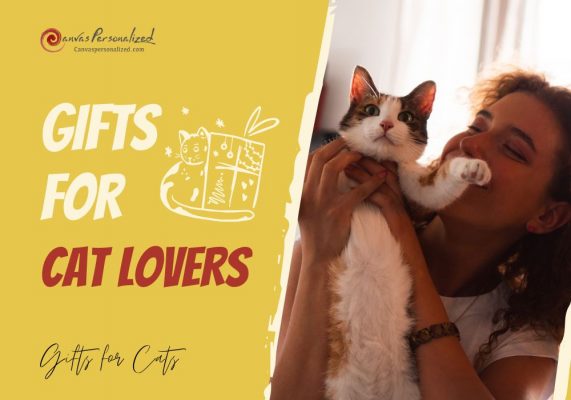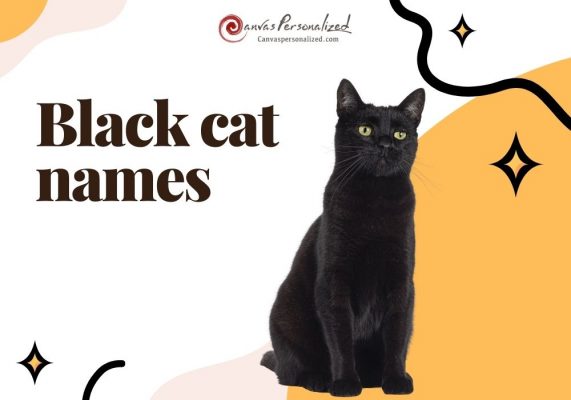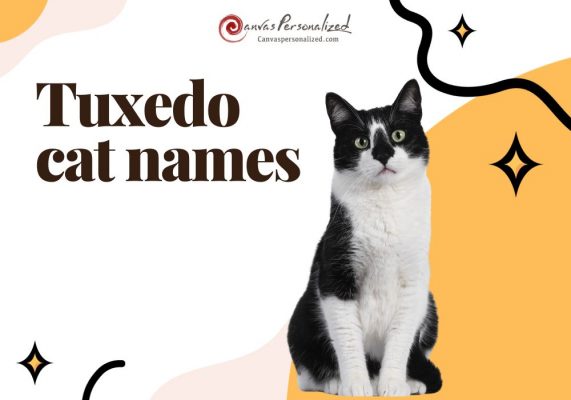If you are looking for a one-of-a-kind pet, the Lykoi cat breed is an unusual feline breed worth considering. This stunning kitten naturally loses a portion of its hair due to a mutation, giving it the look of a wolf. Although they may appear fierce at first glance, these cats make loving pets because of their pleasant personalities. They make loving pets and faithful companions. Canvas Personalized is going to explain why the Lykoi are so fascinating and endearing by delving into the breed’s history and special physical characteristics.
1. The Lykoi Cat Origin

Lykoi cat breed have a brief and somewhat peculiar history. It is a standard house cat, except for its distinctive fur.
The Lykoi’s hair coat gene is present at random in populations of domestic shorthair black cats. Naturally occurring werewolf cats have been known for over 40 years, but their unique appearance due to this mutation has only recently gained widespread attention.
A woman named Patti Thomas in Virginia, the United States, rescued two odd-looking kittens in 2011. Pattie took her new kitties to a doctor in Tennessee named Dr. John Gobble because she was worried they had an illness. He concluded the cats were completely healthy, but everyone was curious about their peculiar hair coat.

Is there a connection between these kittens, the Devon Rex, the Sphynx, and two other hairless cats? With the help of a biologist, Dr. Leslie Lyons, Dr. Gobble was able to figure out that the kittens did not have the genes of these breeds and were not related to them in any way.
The Lykoi kitten is still a rather uncommon sight these days. The “Werewolf Cat,” with its charming nature, low maintenance needs, and adorable furry face, is well worth owning.
2. The Lykoi Characteristics of Appearance

There is no getting past the fact that Lykoi kitten could be a difficult cat to adore. This cat resembles a werewolf in that it has a lean, muscular build and a wedge-shaped head with a hairless “mask” of skin around its eyes, nose, snout, and the backs of its ears.
Some Lykois do not even have any body hair at all. Because of this, they are frequently mistaken for sphynx cats, although two bear no genetic resemblance to them.
Although variations exist, the Wolfcat breed tends to be medium-sized. Males tend to be larger than females, but both sexes typically weigh between 8 and 13 pounds. They feature pointed ears, a lean build, and a medium-length, tapering tail. Lykoi felines have a lifespan of between 10 and 15 years, which is typical for the cat breed.

Their eyes give them the appearance of werewolves. They are large, almond-shaped, and very bright. The tint of their fairly spherical eyes ranges from amber to green.
Lykoi Wolf cat is not considered hypoallergenic. Despite their seemingly abrasive exterior, these cats have a delicate, short, and reasonably soft coat. The usual color for Lykoi is black roan with a hint of silver. The Wolfcat lacks an undercoat. Therefore, they only have fine outside hairs. It can give them a mangy appearance similar to that of a werewolf.

>>> Get inspired and choose the unique gifts for your Lykoi lovers!
3. The Lykoi Cat Personality
An easygoing and friendly cat, this is a popular breed. Because of his loving nature, the Lykoi gets along great with people, other cats, and even cat-friendly puppies. The Lykoi is known for its lively nature, but it also has a tendency to disappear for long periods.
Although they like the company of new people, they may be somewhat aloof at first. They are more comfortable in the company of their regular human partners This Werewolf cat breed is one of the intelligent felines. They are fantastic at finding creative solutions, which shows in their games.

4. How to care
Grooming and Nail trimming
Lykoi’s coats shed, so they may appear nearly bare at times. They need frequent washing, yet their lack of fur makes bathing a breeze. Some cats may be more prone to developing blackheads and other minor “cystic acne” symptoms, necessitating more regular bathing. But this problem poses no risk to your pet’s health.
You must always use a pet-safe product to clean your cat’s ears and trim their nails as needed. You should also supply a sturdy scratching pole to satisfy their natural scratching instinct.

Nutrition
It would be best if you never let your cat have free access to food, says the Lykoi Breed Committee. Due to their nature as “obligate carnivores,” they require a protein-rich diet. Most brands of dry food are not suggested since they contain too many carbohydrates for the Lykoi. This increases the risk of developing diabetes.
You should always provide clean water for your Werewolf kittens and clean the water bowl. You can use different types of water containers, such as bowls, towers, or fountains. If you are concerned that your kitten is not drinking enough water daily, several cat behaviorists recommend moving the water bowl at least three feet away from the food. An overpowering aroma of food can make a feline less interested in drinking water.

Exercise and Training
The Wolfcat breed is highly trainable because of its openness to new experiences and people. They are not climbers, so you need not worry about them ascending to the highest points of your home’s furnishings. Keep in mind that each Lykoi eventually develops its own unique taste in gaming. It is best to follow their interests and lead when playing with them.
Since Lykoi are so energetic, providing them with plenty of playthings and room to roam is important. They will happily play with you, another cat, or even by themselves if given enough toys. To keep things fresh, switch up the toys occasionally by storing some and bringing others out. You should provide both vertical (such as towering posts or cat trees) and horizontal scratchers (such as cardboard or sisal that lie flat on the ground) in your kitty’s scratching locations around the house.
>>>Check out some helpful cat training tips for your pet to stay happy!
5. Common Lykoi Cat Health Problems

Since Lykois are a relatively young breed that evolved from regular housecats, little information is available about the most prevalent health issues they may face. When the Lykoi cat was first created, special precautions were taken to prevent inbreeding and thoroughly screen for genetic abnormalities. However, the following are some of the most frequently seen health issues in these felines:
- Skin problems – The skin of a Lykoi kitten, especially a less-haired one, is extremely delicate. Their skin is more susceptible to becoming greasy and irritated. It needs to be checked by a vet frequently.
- Feline Infectious Peritonitis – This virus, known as a “feline coronavirus,” has been harming cats.
- Arthritis – When Lykoi reaches age 10, they are already at increased risk for developing orthopedic issues, including arthritis and weakened bones.
- Hyperthyroidism – In cats, issues like vomiting and diarrhea can arise from a thyroid that is overactive. You should add iodine to your pet’s diet to prevent this problem.

Vaccinations are a must for your furbaby. Your Lykoi’s vaccination schedule and heartworm prevention recommendations will change depending on your location and the cat’s habits. The feline herpes virus, feline calicivirus, and feline panleukopenia vaccines are the standard immunizations veterinarians recommend. All states, excluding Hawaii, will vaccinate their cats against the deadly rabies virus.
6. Is Lykoi suitable for your family?
The Werewolf cat breed is sociable and adapts well to living with people. They are more devoted to their owners than any other breed. This breed requires minimal care since it was developed from domestic and stray short-haired cats. It is thus accustomed to living indoors.

Lykoi tends to get along well with kids and other household pets. They may be wary of strangers at first, but after they realize that the children and other animals pose no harm, their fun sides will emerge. Once they are comfortable with the pets and people, they may display protective behavior if they sense danger to those who live in the house.
When leaving your children with a Lykoi kitten, ensure they know not to bother the cat and to be gentle when playing with it. Otherwise, the kitty may react defensively and scratch your kid. Take the same precautions you would with any other cat breed, and keep young children under close supervision.
7. Adopting or Purchasing a Lykoi

The Lykoi cat breed is an uncommon species indeed. There is now a very long waiting list for anyone wanting to buy a Lykoi feline. There are now active Lykoi breeders listed on the websites of both the Cat Fanciers’ Association and the International Cat Association. It is quite rare that you will locate this feline in a shelter or rescue organization.
The Lykoi cat’s price ranges from $1,500 to $2,500 due to its scarcity. Their regular upkeep is significantly more affordable, coming in at about $40-$100.
If you are considering where to adopt or purchase these felines, the table below might assist you:
| Website | Price Range | Location | Delivery Options |
|---|---|---|---|
| https://gokitty.com/kitten/listing/breed/lykoi/ | $1500 – $5000 USD | Various | Depends on the breeder |
| http://lykoicattery.com/available-kittens | $2500 USD | Port Sanilac, MI, US | By car or by flight with a nanny |
| https://www.purrxotics.com/lykoi-cat-wolf-cat-or-the-werewolf-cat-lykoi-breed-for-sale/ | Not specified | San Diego, CA, US | Not specified |
| https://lykoikitten.com/ | Not specified | Various | Not specified |
8. Fun Facts about the Werewolf Cat
- Standard Lykoi cats are exceedingly rare, with fewer than 100 existing in the world.
- Their name comes from the Greek word “Lycos,” which means “wolf”.
- The Wolfcat breed has the rare ability to change color in response to heat or sunlight. When exposed to sunlight, a cat’s normally pink skin will change to a dark brown.

>> Further reading
- Unveiling Bombay Cat Breed: Black Beauty with a Gentle Soul
- Devon Rex Cat Breed: Profile, Personality & How to Care
A Lykoi is one of the most interesting and unusual pets you could ever come across. With their wolf-like allure and distinctiveness, these feline wonders captivate admirers worldwide. To learn more about the Lykoi cat breed and other types of kittens, visit our blog, Canvas Personalized, where we cover everything from caring for your pet to the different breeds of cats out there.










